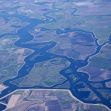After California’s Department of Water Resources (DWR) released water from Lake Oroville into the Oroville Dam during 2017 flood conditions, a local district attorney sued the agency for releasing harmful materials into the state’s waters. DWR said they did it in order to protect the dam. The statute that protects the state’s waters says that “a person” who violates a section of the Fish and Game Code is subject to civil penalties. An appeals court has now agreed with the trial court’s ruling that DWR, a state agency, is not “a person” and thus cannot be sued for penalties and injunctive relief.
Butte County District Attorney Michael L. Ramsey, where the lake and dam are located, sued the DWR under Fish and Game Code §5650.1 (the Code), which says ‘It is unlawful to deposit in, permit to pass into, or place where can pass into the waters of the state any of the following…” It then lists the prohibited items that include petroleum products, sawdust, factory and refinery refuse, and “any substance or material deleterious to fish, plant life, mammals, or bird life.” On behalf of the People, he sought an injunction and civil damages.
Sacramento County Superior Court James E. McFetridge granted DWR summary judgment, but Ramsey appealed, arguing that DWR in fact, is a “person” that would be covered by the Code section. A unanimous three-justice panel from California’s Third Appellate disagreed and affirmed the trial court in an opinion titled Oroville Dam Cases, written by Justice Jonathan K. Renner on October 5.
The opinion began with an explanation of DWR’s duties, which since 1961 have included responsibility for the “operation, maintenance and regulation of Oroville Dam, including the gated flood control spillway and the emergency spillway.” Ramsey’s suit alleged that the DWR’s release of the lake water caused an adjacent hillside to erode in a manner that endangered the safety of the nearby Feather River by polluting it with 1,700,000 cubic yards of “concrete, lime, slag and substances and material deleterious to fish, plant life, mammals and bird life.”
DWR operates under the authority of the Federal Energy Regulatory Commission (FERC), which gave it a 50-year license to construct and operate the Oroville Dam in 1964. The license included a clause that mandated DWR to “prevent damage to fish and wildlife resulting from construction or operation of the project.” The license was renewed in 2007 and is renewed annually.
Renner’s opinion explained that motions for summary judgment, like the one issued by McFetridge, must only be granted where there is no triable issue of fact and the “moving party is entitled to judgment as a matter of law.” A discussion of whether DWR is a person followed, with Renner concluding that the State Legislature “exempted state agencies from civil penalties under section 5650.1.”
In support of his conclusion, Renner cited a 2010 precedent from Watershed Enforcers, 185 Cal.App.4th, which cited “the well-settled rule of statutory construction that absent express language to the contrary, governmental entities are excluded from the operation of general statutory provisions which implicate the exercise of sovereign powers.”
In that opinion, then-Presiding Justice James Marchiano from Division One of the First District Court of Appeal concluded that “the literal textual meaning of ‘person,’ would seem to exclude state agencies,” and he added, “Obviously, a state agency is not a natural person or any of the types of business organizations listed (in the Code). And we cannot overlook the Legislature’s ability to expressly define ‘person’ to include a public entity.” It did not do so.
Renner also disagreed with Ramsey’s contention that injunctive relief should be permitted even if DWR is not “a person” under the Code. Finding “some merit” in this argument, because the relevant section of the Code does not specifically refer to “a person” as the sole proper defendant, he nonetheless determined that DWR’s release of the lake water was not ongoing, but was justified because it “took place during an emergency.”
When affirming the trial court’s grant to summary judgment, the Third Circuit found that DWR “acted proactively” during an emergency and had been given the authority “to control releases of the water to protect the dam and to reduce downstream damage from floods.”






